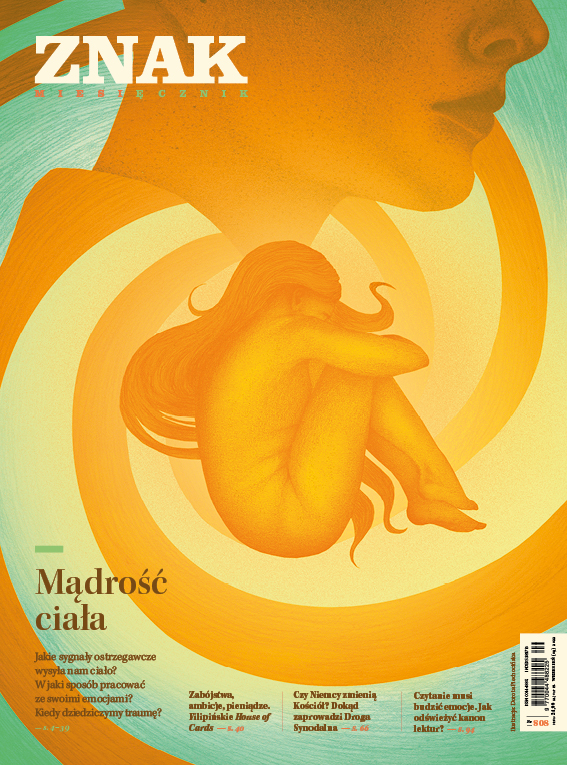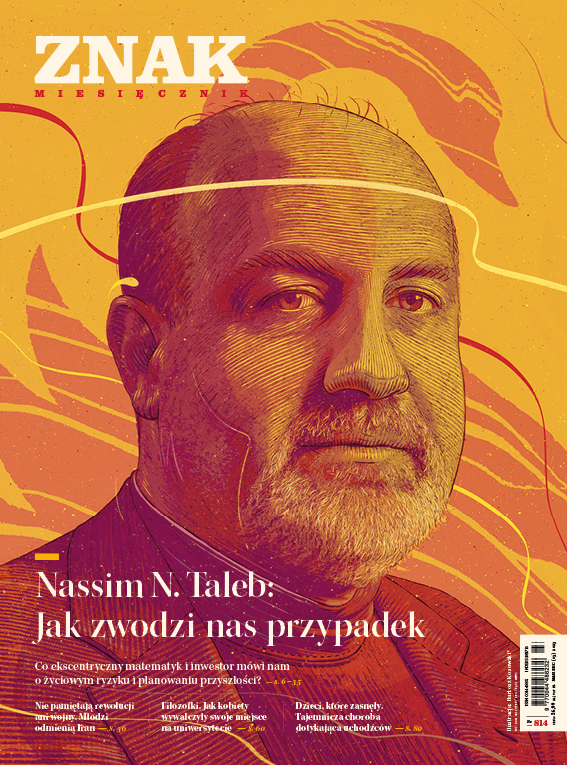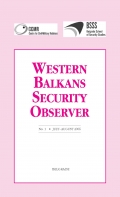
We kindly inform you that, as long as the subject affiliation of our 300.000+ articles is in progress, you might get unsufficient or no results on your third level or second level search. In this case, please broaden your search criteria.

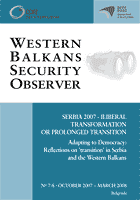
This short analysis will give a retrospective of the basic concept and structure of the proposed Law, and some of its individual articles. The content of the proposed Law will be comparatively analysed with (1) the relevant articles of the constitution, (2) existing security service legislation (this being the Law on the Security Intelligence Agency and the Law on the Security Services of the FRY, both from July 2002)2 and (3) the laws of a few selected democracies as well as the policies of the international organisations working in this field.
More...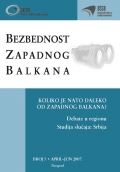
According to the latest survey, conducted in June by a respectable PULS Agency for the Ministry of Foreign Affairs and European Integration, Croatia’s accession into NATO is supported by 44 percent of Croatian citizens, while 28 percent are against it. In addition, the survey shows that 75 percent of interviewees, regardless to their attitude towards NATO, expect that Croatia will join NATO in the next two years. The PULS analysts say that stabilisation of support to NATO accession occurred in June, as well as that the support is no longer increasing like during previous months. Namely, according to a survey conducted by the London GfK Agency, at the beginning of June, 52 percent of citizens supported the country’s accession into NATO.
More...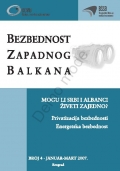
The most recent campaign for parliamentary elections lasted almost three months, thus becoming one of the longest in the history of party pluralism in Serbia. The campaign focused on economic and social topics, which is hardly surprising bearing in mind that unemployment, underdeveloped economy, low standard of living and inferior health care are the most frequent problems plaguing the citizens of Serbia. This text shall analyse the way in which the political parties campaigning at the 2007 parliamentary elections addressed security topics, such as the future Kosovo status, cooperation with the Hague tribunal, corruption, opening of secret services’ files and security cooperation. Furthermore, we shall try to establish any changes in the status of security topics compared with the 2003 parliamentary elections. [...]
More...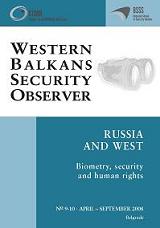
As an important feature of one political regime, the pattern of civil-military relations could serve as an assessment tool in research of regime’s democratic or undemocratic nature. In this article civil-military relations during El’tsin’s first presidential term were analysed on the basis of political and military establishments’ attitudes towards the norm of the military noninvolvement in domestic politics. This norm was particularly challenged in 1991-1995 period in Russia during three crucial events: August 1991 coup, October 1993 Parliament bombing and the launching of the First Chechen War in 1994.
More...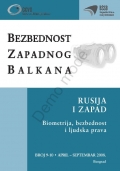
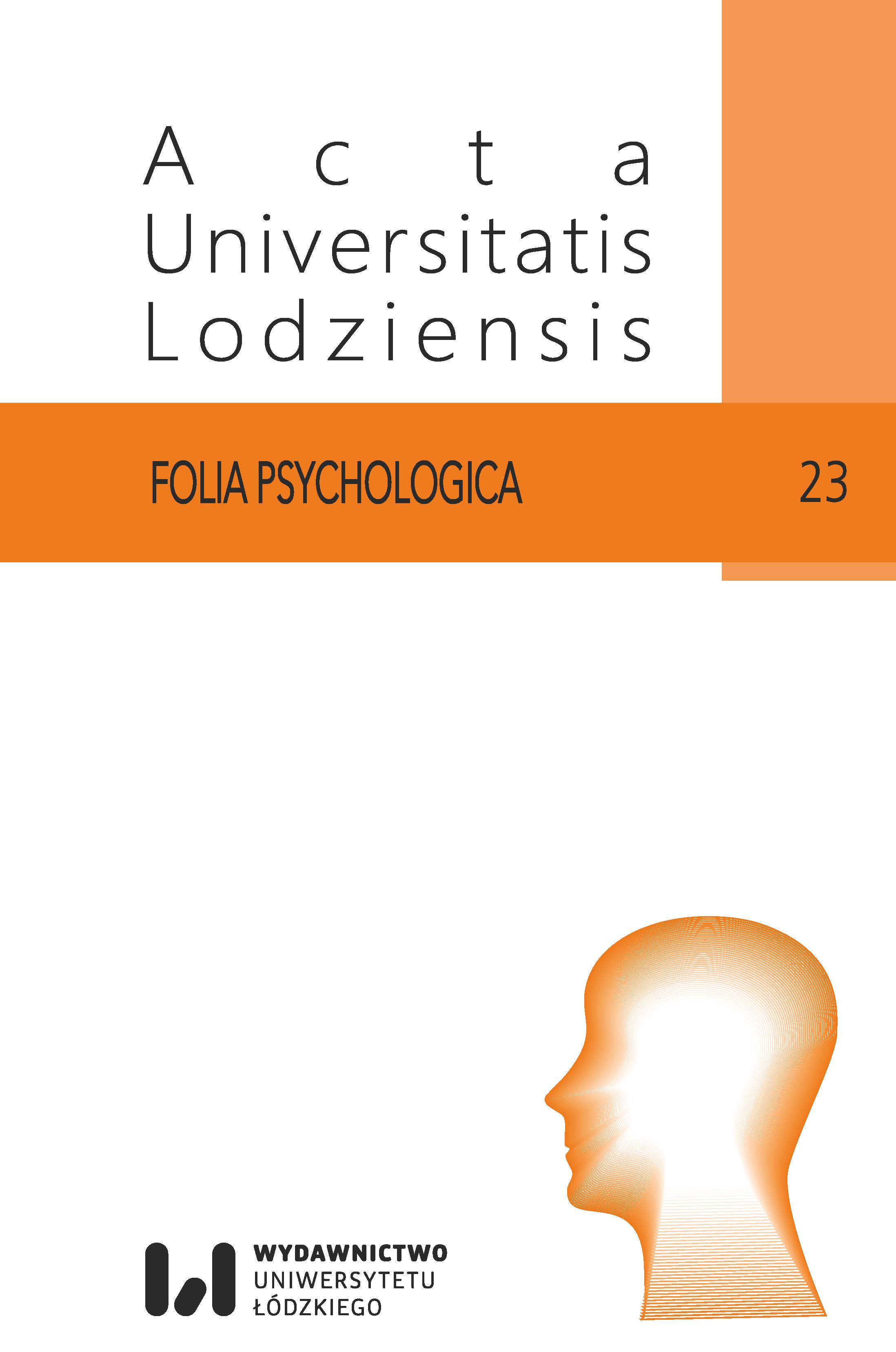

Over the last three decades, social neuroscience, which had emerged as a subdiscipline of cognitive neuroscience at the beginning of 1990s, has been rapidly developing its specific methodology and extending its research scope. By combining knowledge and methodology from social, psychological and biological sciences it is uniquely suited to study human functioning on multiple levels and elucidate the trajectories underlying human social behavior. The current article aims to briefly cover the history of social neuroscience by discussing development of both research and academic structures related to it. Moreover, the research on the association between social isolation and subjective social status, and health is presented as an example of practical application of the interdisciplinary approach adopted by social neuroscience.
More...
Young adults transition is a bridge between structured predictable system of education and unpredictable unstable labour market. Transition is a challenge for the youth during their growth into adulthood. The article displays specific difficulties of the youth with disabilities in the process of transition. The authors underline the role of parents and schools in preparing adolescent individuals with disabilities for building their autonomy in their adult lives.
More...
According to the socio-ecological model, intellectual disability is a multidimensional state of human existence, which is considered in relation to the requirements of the environment. One of the factors of this model, is the context, indicates that the functioning of a person with a disability is influenced by many internal characteristics of the person and their environment. They also include the spiritual and religious experiences of a person with intellectual disability. This article will discuss issues related to the religiosity of this group of people as important for their functioning. It includes a meta-analysis of the results of research on this issue. The cognitive, emotional-motivational and behavioral components of the religious attitude will be presented. These issues are relatively rarely discussed in the literature on the subject. The analysis of the literature on the subject shows that religiosity is of great importance for the functioning of people with intellectual disabilities. Religious experiences (emotional component) and religious practices (behavioral component) are of particular importance to them.
More...
Introduction: Osteogenesis imperfecta (OI) is a rare, disease of bone. Its etiology includes the occurrence a defect in the genes that produce type I collagen or mutations in the genes of proteins involved in its post-translational processing. Patients experience recurrent fractures in long bones and vertebrae as well as functional difficulties of other systems and organs. Aim: Assessment of parents’ attitudes towards pediatric patients diagnosed with OI. Material and methods: 102 people 51 parents of patients with OI and 51 caregivers of children with calcium-phosphate abnormalities were examined. The Parental Attitude Scale by M. Plopa and the proprietary sociometric survey were used. Results: There were no statistically significant differences in the assessment of the severity of parents’ attitudes towards children with OI (osteogenesis imperfecta) and Ca-P A (calcium-phosphate abnormalities). The guardians are characterized by a high level of acceptance, average level of requirements, autonomy and protection, and low inconsistency towards sick children. Conclusions: Parents of children with OI have the potential to create good conditions for the development of their sick children and positive attitudes are beneficial factors contributing proper adaptation of their children to life.
More...
The study analyzed whether intelligence differentiates social competences (in self-reports and peer assessments), value importance, and the relationship between values and social skills. 56 members of Polish Mensa and 57 people from the control group completed on-line the PVQ-RR (values) and the PROKOS (skills) questionnaires. Their skills were also assessed on-line by their friends using a modified version of the PROKOS. Mensa members rated their cooperative skills lower and tended to rate societal skills lower and assertive skills higher than the control group, but there were no differences in peer assessments. Among Mensa members self-assessments of skills (besides social and assertive) were lower than peer assessments. Mensa members significantly less identified with universal values and valued social values lower than the control group. In the control group, the self-rated competences were associated with Social-Focused and Self-Focused values. Among Mensa members, values did not correlate with self-rated social skills.
More...
This paper, written from a family and systemic perspective, examines the final session of a therapeutic process in family and systemic psychotherapy and it’s organized around the topics about characteristics and tasks that need to be taken in account while preparing for the ending session. Endings are about a shift and transition between one state to another, often accompanied with feelings ranging from excitement for the future to loss. Endings are generally hard in human relations and therefore they are often being avoided. Family and systemic therapy are not exceptions. There are different types of endings in family therapy. In an ideal case the ending is planned, carefully thought, tasks that are important for finishing are done, goals that are set are achieved and the decision for ending the therapy is from both sides (client and therapist). In this case the end of the therapy comes totally naturally and spontaneous. However, in family therapy endings are often inadequate. The purpose of this paper is to enumerate and discuss different tasks for completing the final session and their significance for the outcome of the therapy.Having in that in mind, we start this paper with overview of most common reasons for ending the therapy and the review on the specific systemic approach to ending therapy. The main focus in this paper is on the steps on how to prepare for the last session. In this sense we talk about the importance of constant monitoring of progress in therapy, summary during therapy, emphasizing progress in therapy, generalization of what is learned in therapy and how it can be used later. We also stress out the importance of acceptance (internalization) of the therapist's opinion, observation of the end of the therapy from the point of view of other ends in life, saying goodbye, discussion of conditions for return to therapy, consideration of further referral and defining the availability of the therapist after treatment.The end of therapy is generally viewed by psychotherapists as a complex stage of the psychotherapy where the process and progress of psychotherapy are typically reviewed and goals are developed for the future. The stages discussed here can help us prepare for the end of the therapeutic process, but they can also guide us in preparing for each subsequent session. In a word, we should lead each session and finish it as if it were our last, because the client does not always plan in advance whether to continue or not. It is necessary to review what has been done so far, emphasizing all the positive changes and completed challenges and goals, preparation for using the learned techniques during the therapeutic process in the daily life of the client. Certainly, it is important to build up the strengths and capacities of the clients to deal with new unforeseen events and situations that will be faced and should be dealt with in the future.This topic is so important and necessary, it is very little processed in the professional literature comparing it with other topics and titles, which was certainly another motivating challenge for me to dedicate to it.
More...
The use of the latest military equipment places exceptional demands on the moral and volitional qualities of the soldiers, whose high level of psychophysical development is an important factor for increasing the combat capability of the troops. The experience of the combat training of the troops and the results of the scientific researches testify to a significant increase of the specific motor qualities and complication of the requirements, which are presented today to the soldiers. Their actions in combat training defined as physical efforts of a dynamic and static nature, which are performed with moderate intensity.According to the National Defense Strategy of the Republic of Bulgaria, the soldiers of the Bulgarian army must be well prepared to perform tasks related to: Protection of the country's borders and airspace; Protection of the country in armed conflict; Participation in multinational crisis response operations; Participation in operations to detain terrorist and criminal groups; Rescue and evacuation actions.The implementation of these tasks requires high combat and physical training, maximum development of basic motor skills, which are the basis for improving the specific knowledge and skills needed to perform the tasks. This implies optimizing the physical training of soldiers, for maximum development of their motor skills, speed, strength, endurance, agility and flexibility.The purpose of the physical education training process with cadets from National Military University “Vasil Levski” is to develop basic motor qualities (strength, speed, agility and endurance), specific motor qualities (strength and speed endurance, tempo speed, etc.) and practical habits for organizing and conducting various forms of sports training.In this study participated 68 second-year cadets from National Military University “Vasil Levski”, who conditionally divided into two groups of men (50 people) and women (18 people).The aim of the experiment was to study the changes in the state of the psychophysical abilities of the cadets during the second, third and fourth year of their education and to establish the effectiveness of the Physical Education Program at the National Military University.In the period from August 2016 to September 2019, an experimental study conducted, which divided into 3 main stages:1)First stage - from the beginning of August 2016 to the end of August 2016.The second-year cadets conditionally divided into two groups - men and women, after which the initial data were taken, giving us information about the current state of their psychophysical abilities.2)Second stage - from September 2016 to June 2019.The students from the two groups conducted their physical training classes together, according to the current Program at Vasil Levski National Military University.3)Third stage - from July 2019 to September 2019.The final data were taken, which inform us about the current state of their psychophysical capabilities. They summarized and prepared for processing and analysis.
More...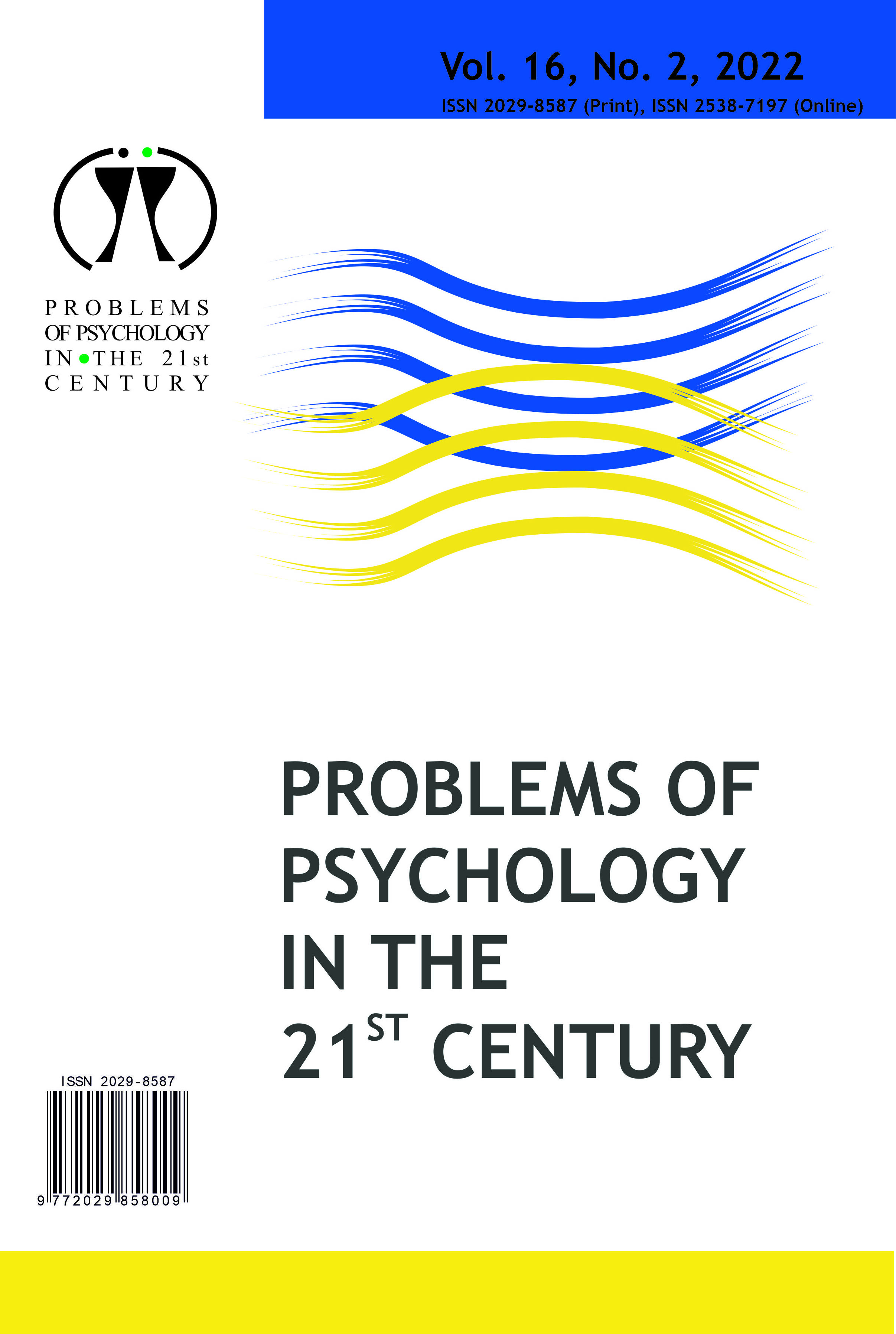
The purpose of the study is to determine the socio-psychological factors influencing the effectiveness of social-psychological assistance to the Ukrainian population in wartime conditions and their possible approbation as the use of relevant experience to ensure effective professional training of future psychologists in higher educational institutions. Research tasks: 1) determination of the social and psychological needs of the war-affected population of Ukraine; 2) determination of the level of social and psychological provision of assistance to victims; 3) determination of the conditions and means of ensuring the development of social and psychological assistance to the affected population.To solve the research task – to determine the level, conditions and means of ensuring the development of socio-psychological assistance to the affected population, the following research methods were used: theoretical analysis, synthesis and applied research using standardized methods.The state of readiness of Ukrainian psychologists to provide appropriate assistance to the population, development of the necessary psychological and methodological materials was analyzed. The peculiarities of psychological assistance to the injured are highlighted using the example of one of the first psychologists who developed a methodical guide aimed at the psychological and mental rehabilitation of injured Ukrainians. Emphasis is placed on psychological diagnosis and individual and group psychocorrection, psychotherapy (primary psychological assistance to displaced persons, assessment of the severity of the impact of a traumatic event, self-assessment of the level of depression in psychological diagnosis, short psychotherapy in an individual and complex multi-directional approach to getting out of a traumatized state in group work with displaced persons) and the importance of the positive influence on the development of this assistance of the relevant personal and professional qualities and properties of future psychologists.In order to identify the conditions and means of ensuring the development of socio-psychological assistance to the affected population, a number of methods were used in the study: 1) "Self-esteem" test (by S.A. Budassi); 2) Method "Self-assessment of mental state: well-being, general activity, mood (SAN)" (authors: V.A. Doskin, N.A. Lavrentyeva, V.B. Sharay, M.P. Miroshnikov); 3) "Scale of reactive and personal anxiety" (developed by C.D. Spielberger, adapted by Y.L. Khanin); 4) "Professional identity study methodology (MVPI) (author L.B. Schneider).178 students of the III-IV courses of the Institute of Pedagogy and Psychology of the National Pedagogical University named after M.P. Drahomanov and 5th courses of the Faculty of Psychology named after T.G. Shevchenko and the Faculty of English of the National Linguistic University.From the analysis of the conducted methods, it was found that the researched future psychologists, who are oriented to practical activities under the guidance of mentors, have inadequately inflated self-esteem, an average level of cognitive activity, and an average level of anxiety during training, which correlates with an insufficient level of development of their professional self-identity. This indicates an inadequately inflated self-esteem, insufficient self-determination, inadequate self-satisfaction, self-expression, and insufficient self-regulation of the subjects during training.Therefore, it is necessary to pay special attention to creating conditions, finding means to increase opportunities for future psychologists to achieve a conscious, positive professional identity at the stage of educational and professional training, as this is an important basis for the effective formation of their professional identity in the future, as future reliable qualified specialists, the professional level of which will meet public demands, the needs of psychological assistance to victims of the war in the country.
More...